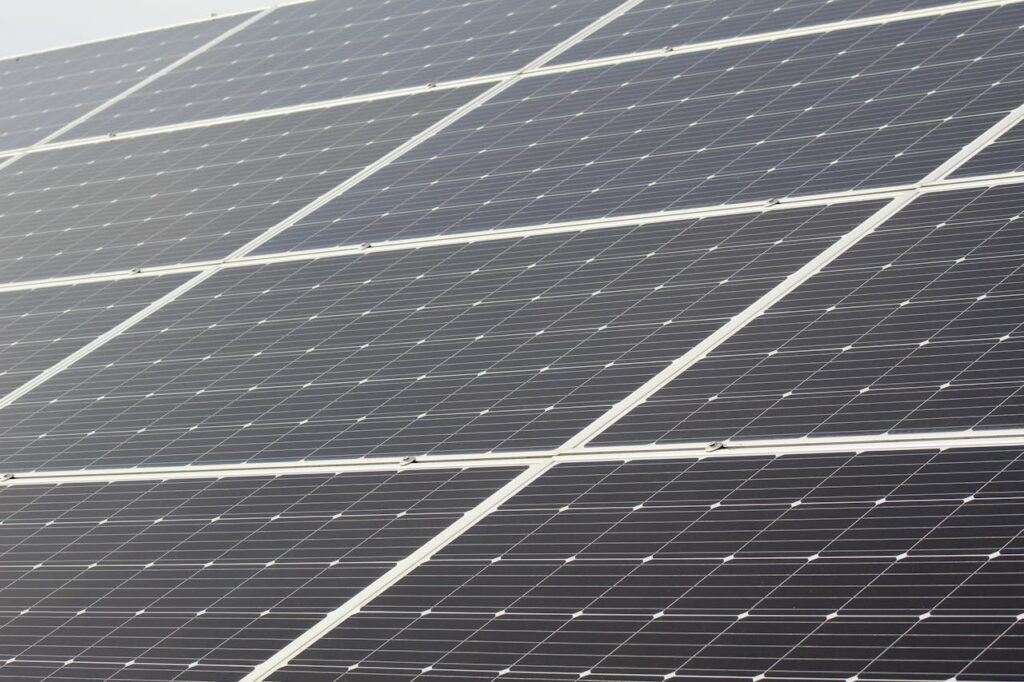The decision involves numerous factors that affect the efficiency, cost, and overall performance of your solar energy system. At PV Recycling, where we specialise in recycling solar panels for businesses, we understand the entire lifecycle of these panels and aim to guide you in making an informed decision.
Understand Your Energy Needs
Before you begin shopping for solar panels, assess your current and future energy needs. Review your past energy bills to determine your average energy consumption. This will help you calculate the size of the solar system required to meet your energy needs. For businesses, consider any planned expansions that might increase energy usage in the future.
Types of Solar Panels
There are three main types of solar panels available on the market:
Monocrystalline Panels
- Efficiency: High (15-20%)
- Cost: Higher
- Lifespan: Long (25+ years)
- Appearance: Sleek black
- Best for: Limited space where high efficiency is crucial
Polycrystalline Panels
- Efficiency: Medium (13-16%)
- Cost: Lower than monocrystalline
- Lifespan: Long (20-25 years)
- Appearance: Blue hue
- Best for: Larger installations where space is not a constraint
Thin-Film Panels
- Efficiency: Lower (10-12%)
- Cost: Generally lower
- Lifespan: Shorter (10-20 years)
- Appearance: Flexible and lightweight
- Best for: Special applications like mobile installations or where weight is a concern
Quality and Durability
Quality and durability are key considerations when choosing solar panels. Look for:
- Warranty: Panels should come with a warranty of at least 25 years.
- Reviews and Reputation: Research the manufacturer’s reputation and read reviews from other users.
Efficiency and Performance
The efficiency of a solar panel determines how much sunlight it can convert into usable electricity. Higher efficiency panels are generally more expensive but can be more cost-effective in the long run if space is limited. Performance can also be affected by temperature, shading, and orientation, so consider these factors in your decision-making process.
Cost and Budget
While it’s tempting to opt for the cheapest option, it’s important to consider the total cost of ownership. This includes not only the initial purchase price but also the installation costs, maintenance, and potential savings on energy bills. Balance your budget with the need for quality and efficiency to ensure you get the best value for your investment.
Climate and Conditions
The climate in your area can significantly impact the performance of your solar panels. Areas with high temperatures might benefit more from panels with a lower temperature coefficient, while regions with frequent cloud cover may require more efficient panels to maximise energy production. Additionally, consider the physical conditions of your installation site, such as roof orientation and shading.
Environmental Impact and Recycling
At PV Recycling, we emphasise the importance of considering the environmental impact of your solar panels. Look for manufacturers that have sustainable production practices and offer recycling programs for when your panels reach the end of their lifecycle. Recycling helps reduce the environmental footprint and supports a circular economy in the solar industry.
Choosing The Right Solar Panel
Choosing the right solar panels for your home or business involves a careful evaluation of your energy needs, budget, and the specific characteristics of different types of panels.
By considering factors such as quality, efficiency, cost, and environmental impact, you can make an informed decision that will provide long-term benefits.
At PV Recycling, we are committed to supporting sustainable solar solutions, including the recycling of solar panels to ensure a greener future for all. This includes solar inverters and batteries.
For more information on our recycling services and how we can help you manage your solar panel lifecycle, contact us directly.

